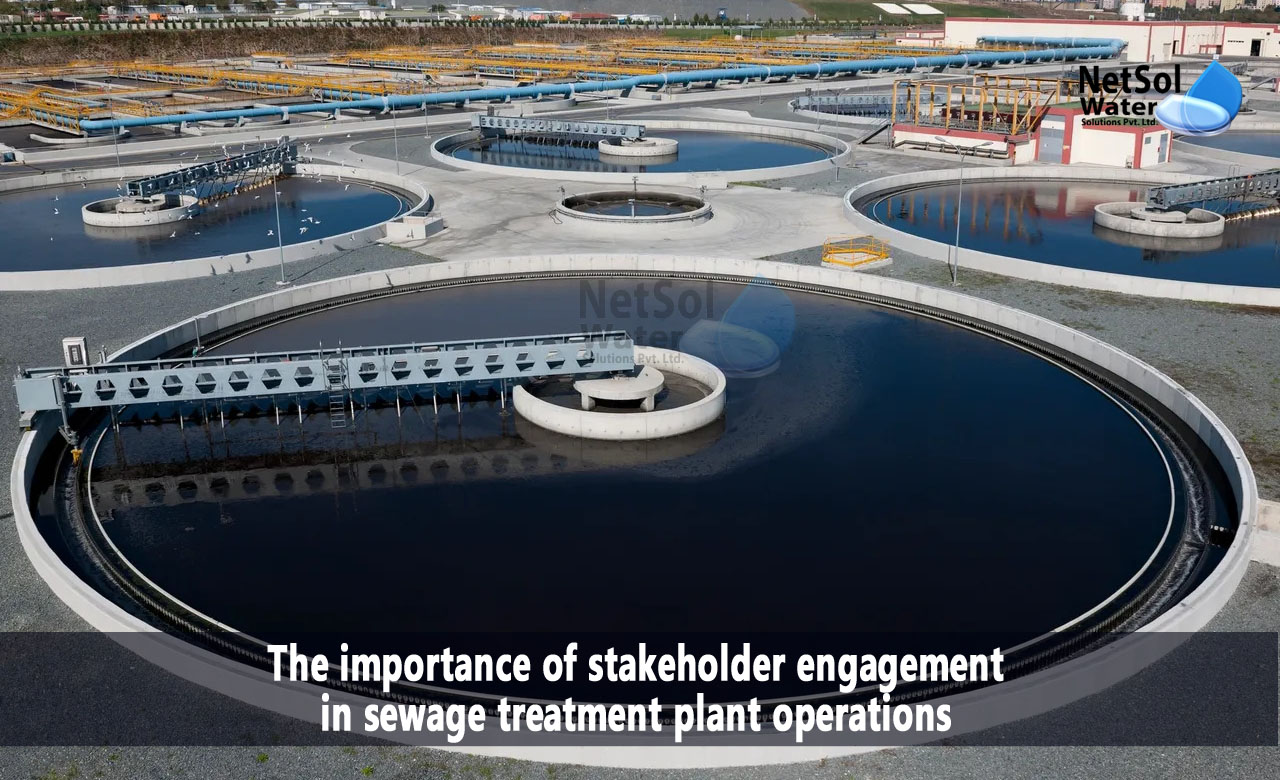What is the importance of stakeholder engagement in STPs operations?
The successful operation of a sewage treatment plant (STP) relies not only on advanced technology and efficient processes but also on effective stakeholder engagement. Engaging stakeholders, including the local community, regulatory bodies, and industry experts, is crucial for the long-term sustainability and optimal functioning of an STP.
In this blog post, we will explore the importance of stakeholder engagement in sewage treatment plant operations and how collaboration fosters effective and environmentally friendly wastewater management.
Understanding Stakeholder Engagement
Stakeholder engagement involves actively involving and communicating with individuals or groups who have an interest or are affected by the operations of a sewage treatment plant. These stakeholders can include:
- Local Community: The community residing near the STP is directly impacted by its operations. Engaging with them helps build trust, address concerns, and create awareness about the plant's importance and environmental benefits.
- Regulatory Bodies: Regulatory agencies play a crucial role in ensuring compliance with environmental regulations and standards. Regular communication and collaboration with these bodies help maintain legal compliance and foster a culture of continuous improvement.
- Industry Experts: Engaging with experts from the wastewater management field allows STP operators to stay updated with the latest advancements, best practices, and emerging technologies. Expert input can help optimize processes, improve efficiency, and enhance environmental performance.
Benefits of Stakeholder Engagement in STP Operations
- Enhanced Operational Efficiency: Stakeholder engagement provides valuable insights and feedback that can contribute to improving the efficiency of STP operations. Inputs from experts and regulators help identify areas for optimization, process improvements, and innovative solutions.
- Environmental Sustainability: By involving stakeholders in the decision-making process, STPs can ensure that environmental concerns are addressed effectively. Collaborative efforts lead to the adoption of sustainable practices, resource conservation, and the implementation of environmentally friendly technologies.
- Community Acceptance and Support: Engaging with the local community fosters understanding, trust, and acceptance. By actively involving community members, STP operators can address concerns, educate the public about the importance of wastewater management, and garner support for initiatives related to sustainability and environmental protection.
- Effective Risk Management: Stakeholder engagement enables identification and mitigation of potential risks. By involving regulatory bodies, community members, and experts, STPs can develop robust contingency plans, emergency response strategies, and measures to prevent adverse impacts on the environment and public health.
Strategies for Effective Stakeholder Engagement
- Open Communication Channels: Establish transparent communication channels to ensure stakeholders have access to relevant information. Regularly update stakeholders on STP operations, environmental performance, and ongoing initiatives.
- Collaboration and Participation: Encourage active participation of stakeholders in decision-making processes. Seek their input on matters such as facility upgrades, environmental impact assessments, and community outreach programs.
- Education and Awareness: Conduct awareness programs to educate stakeholders about the importance of wastewater management, environmental sustainability, and the role of the STP. This helps foster a sense of ownership and promotes responsible behavior among stakeholders.
- Feedback Mechanisms: Implement mechanisms to gather feedback and suggestions from stakeholders. This can be done through surveys, public consultations, or dedicated forums where stakeholders can voice their concerns and provide valuable insights.
- Partnerships and Alliances: Foster partnerships with local organizations, educational institutions, and industry associations. Collaborative initiatives can include knowledge-sharing, joint research projects, and capacity-building programs, further enhancing stakeholder engagement.
Conclusion
Stakeholder engagement is a critical element in the successful operation of sewage treatment plants. By involving the local community, regulatory bodies, and industry experts, STP operators can foster collaboration, gather valuable input, and address concerns effectively. This collaboration leads to enhanced operational efficiency, improved environmental sustainability, and the development of strategies for effective risk management.
As we strive for a more sustainable future, stakeholder engagement in sewage treatment plant operations plays a pivotal role. By embracing the perspectives and expertise of diverse stakeholders, we can collectively work towards efficient wastewater management, environmental protection, and the well-being of communities and ecosystems.
Netsol Water is Greater Noida-based leading water & wastewater treatment plant manufacturer. We are industry's most demanding company based on client review and work quality. We are known as best commercial RO plant manufacturers, industrial RO plant manufacturer, sewage treatment plant manufacturer, Water Softener Plant Manufacturers and effluent treatment plant manufacturers. Apart from this 24x7 customer support is our USP. Call on +91-9650608473, or write us at enquiry@netsolwater.com for any support, inquiry or product-purchase related query.



